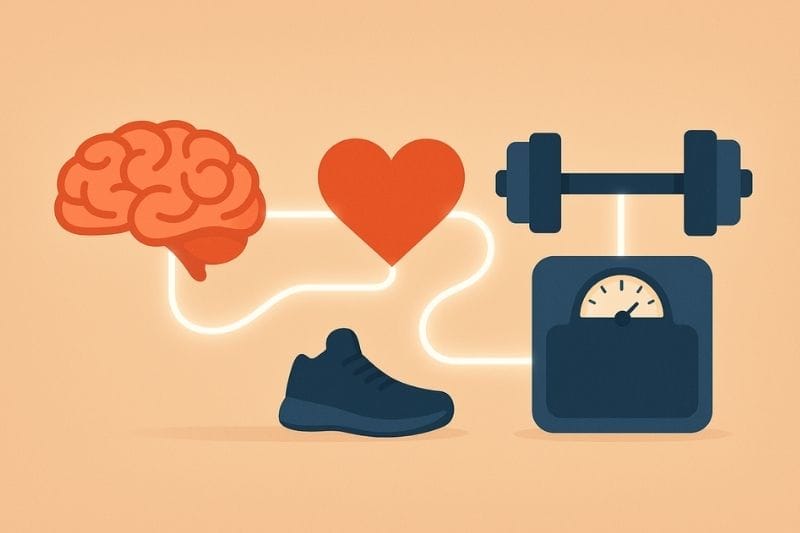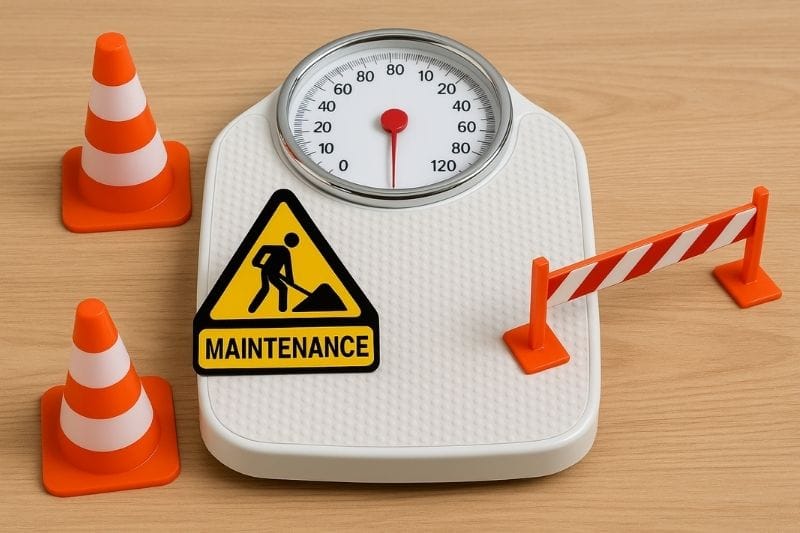Perimenopause and postmenopause often bring changes like muscle loss, reduced bone density, brain fog, mood swings, weight gain, and a slower metabolism – all of which can affect energy levels, body composition, and long-term health. Creatine is one of the most researched and affordable supplements available.
So, can creatine help women during perimenopause and postmenopause? Yes. Research suggests creatine can support muscle strength, bone health, and even cognitive function, making it a valuable supplement for many women in this stage of life.
In this blog, I’ll take a look at how creatine works, why it can be helpful during menopause, and how to use it safely for the best results.
Understanding Perimenopause and Postmenopause
Perimenopause is the transition phase leading up to menopause, characterised by fluctuations in menstrual cycles and hormone levels, particularly oestrogen and progesterone. Postmenopause follows menopause, the point at which a woman has not menstruated for 12 consecutive months.
Benefits of Creatine for Women Over 40
Creatine is best known for its ability to increase phosphocreatine levels in your muscles. In simpler terms, this means it helps your muscles produce energy more efficiently, especially during short bursts of high-intensity activities like weightlifting, sprinting, or explosive movements.
But it is not just about sport. It also has potential benefits for supporting the health of perimenopausal and postmenopausal women in several ways:
Muscle Mass and Strength
One of the challenges women face during perimenopause and postmenopause is the loss of muscle mass and strength, partly due to declining oestrogen levels. Creatine supplementation can help counteract some of this by improving muscle function and promoting lean body mass. This is crucial for maintaining physical strength, balance, and overall quality of life. This should be combined with some kind of resistance training such as going to the gym or doing bodyweight exercises at home.
Bone Health
Creatine may also play a role in supporting bone health. Research indicates that creatine supplementation, in conjunction with resistance training, can have a positive impact on bone density. This is particularly important for postmenopausal women, who as they age are at an increased risk of osteoporosis and fractures due to a decline in bone density following menopause.
Metabolic Benefits
Additionally, creatine has been linked to potential metabolic benefits, including the regulation of blood sugar levels. This is relevant for perimenopausal and postmenopausal women, who may experience changes in glucose tolerance and an increased risk of developing type 2 diabetes.
Cognitive Function
Emerging evidence suggests that creatine supplementation might also support cognitive function, which can be affected by the hormonal changes during perimenopause and postmenopause. Improvements in memory, alertness, and task performance have been observed, highlighting another dimension of creatine’s potential benefits for women during these stages, especially if they are experiencing “brain fog”.
How to Take Creatine for Menopause
While the benefits of creatine are promising, it’s important for women to consider the right approach to supplementation. A typical recommendation includes starting with a low to moderate dose (e.g., just 3-5 grams once per day) to assess tolerance and effectiveness.
There’s generally no need for a loading phase, as often suggested for athletic performance enhancement (where you take around 5 grams four to five times a day or around five to seven days). So don’t do this.
It’s also crucial to stay well-hydrated and to consult a healthcare provider before starting any new supplement, especially for individuals with existing health conditions or concerns.
FAQs on Creatine and Menopause
Is creatine safe for women during perimenopause and postmenopause?
Yes, creatine is generally considered safe for healthy women when taken in recommended doses. Always check with your doctor if you have any health conditions.
What are the benefits of creatine for women over 40?
Creatine can support muscle strength, lean mass, bone health, and cognitive function, which are all important as hormone levels change.
Does creatine help with menopause weight gain?
Creatine is not a weight loss supplement, but it can help preserve muscle mass and improve training performance, which supports a healthy metabolism.
How much creatine should a woman take during perimenopause?
A daily dose of around 3 to 5 grams of creatine monohydrate is typically recommended, without the need for a loading phase.
Do you need to load creatine if you are a woman?
No, women can benefit from a simple daily maintenance dose. Loading is not necessary unless you want faster initial saturation.
Can creatine help with fatigue during menopause?
Some research suggests creatine may improve energy availability and even cognitive performance, which could help reduce feelings of fatigue.
Will creatine make me look bulky?
No, creatine helps muscles retain more water inside the cells and supports strength gains, but it does not create bulky muscle on its own.
Is creatine safe for bones and joints?
Yes, in fact, creatine combined with resistance training may help maintain or even improve bone density, which is important after menopause.
Does creatine affect hormones?
There is no evidence that creatine negatively affects female hormones. It works by supporting energy production in muscles and the brain.
When is the best time to take creatine?
You can take creatine at any time of day, but many people take it after exercise or with a meal for convenience and better absorption.
Research
- Creatine Supplementation in Women’s Health: A Lifespan Perspective – This review suggests that creatine supplementation can be effective for improving strength and exercise performance in pre-menopausal females. It also highlights the potential benefits in skeletal muscle size and function for post-menopausal females when consuming high doses of creatine, especially when combined with resistance training.
For women navigating perimenopause and postmenopause, creatine supplementation offers a potential avenue for supporting muscle and bone health, metabolic function, and cognitive performance. As research continues to unfold, creatine may become an increasingly important tool in the holistic management of menopausal health challenges. So consider adopting a balanced approach that includes regular physical activity, a nutritious diet, and possibly creatine supplementation.
The information provided in this article is for educational purposes only and is not intended as medical advice; always seek the advice of a medical professional before making any changes to your health regimen.
I can help you…
I am a Weight Loss Coach, successfully helping people just like you to lose weight and keep it off:
I am a Fitness, Strength and Nutrition Coach for sports events and athletes – helping people like you to get fitter, stronger and faster:
I am a Menopause Support Coach, find out more about how I can help you:
Want to get stronger, fitter or gain muscle?




